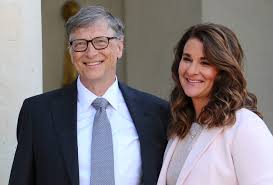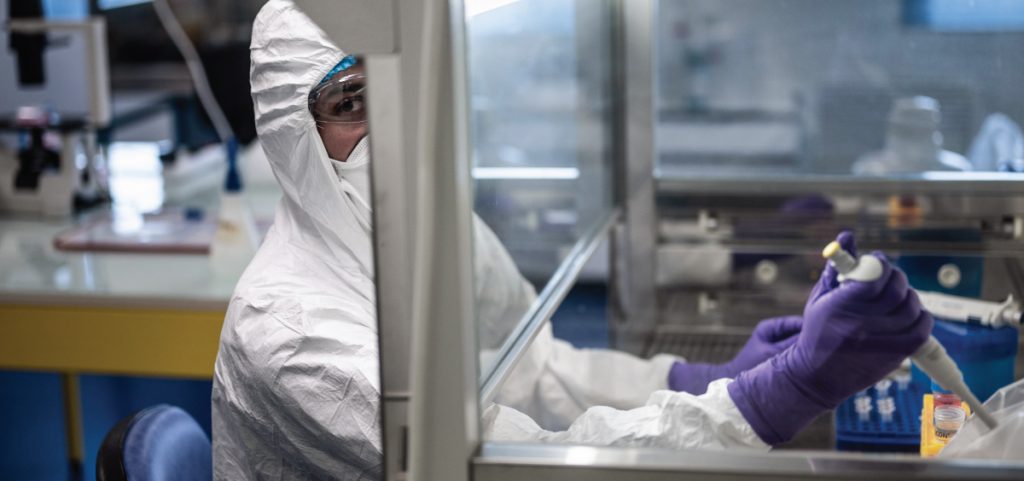
While the Covid-19 (aka Novel Coronavirus) pandemic has rapidly reached global proportions, it has struck close to home in the tech capital of Seattle.
The novel virus has made the Seattle-area the epicenter of the first U.S. domestic fatality. Washington state has now been declared a state of emergency by Governor Jay Inslee after the first confirmed U.S. coronavirus death occurred in Kirkland, Washington on February 29. A second fatality was reported the next day. At last count, nine deaths had been confirmed in the early throes of the outbreak.
The first decedent was a patient at Evergeen Hospital in Kirkland, Wa. Two other Coronavirus cases were connected to a nursing facility named Lifecare, also in Kirkland. As of Feb. 29, there were six presumptive cases of the novel virus, four of those in King County and two in Snohomish County. None of the patients had traveled to Wuhan, the Chinese city at the center of the coronavirus outbreak.

As a consequence, the way the novel coronavirus is now being diagnosed has changed. No longer are tests limited only to international travelers, but administered to anyone who displays a severity of respiratory distress and other symptoms on doctor’s orders.
The crisis is confounding health care experts in an area that is home to one of the world’s greatest combatants of infectious disease.
The Bill & Melinda Gates Foundation, which is dedicated to eradicating disease worldwide, has committed up to $100 million in additional funding to improve detection, isolation and treatment of the virus. The new funding is inclusive of $10 million the foundation previously pledged to the outbreak in late January.
The Gates Foundation is also contributing its resources – in close coordination with other donors – to assist the World Health Organization (WHO), Chinese frontline responders and others at the global and national levels. WHO declared the 2019-nCoV outbreak a public health emergency of international concern on January 30, citing the risks the virus poses globally and the need for a worldwide coordinated effort to enhance preparedness, especially in fragile settings. The Government of China has also declared a national public health emergency and mobilized a nationwide effort to contain the virus and treat those who are infected.
Microsoft’s co-founder wrote that the coronavirus may be the “once-in-a-century pathogen we’ve been worried about.”

“I hope it’s not that bad, but we should assume it will be until we know otherwise,” Bill Gates wrote in the New England Journal of Medicine and reiterated in his personal blog, GatesNotes.
What makes COVID-19, the official name of the disease, especially concerning is that it is more contagious than other deadly diseases.
“First, it can kill healthy adults in addition to elderly people with existing health problems,” Gates wrote. “Second, Covid-19 is transmitted quite efficiently. The average infected person spreads the disease to two or three others — an exponential rate of increase.”
Gates also noted that the mortality rate of the virus was higher than typical influenza. Depending on the quality of care that a patient receives, the mortality rate for the virus can range from 0.7 percent to 4 percent, Gates explained. Continuing, he said the average estimated mortality rate of the virus is currently about 1 percent.
For reference, according to data from the Centers of Disease Control and Prevention (CDC), the 1957 Asian flu pandemic (0.6 percent mortality rate) killed 1.1 million people and the 1918 Spanish flu pandemic (2 percent mortality rate) killed 50 million worldwide.
On Friday, the World Health Organization (WHO) raised its coronavirus risk assessment to “very high,” but said that the outbreak has yet to become a global pandemic. That designation may be imminent.

At present, there are more than 85,000 reported cases of the virus worldwide and almost 3,000 deaths – the vast majority in Mainland China, where the outbreak originated.
How would Bill Gates tackle the global epidemic given his work in public health for more than two decades?
Governments Are Key
A foremost consideration is that there are actions that only the government can take.
“Pandemic products are extraordinarily high-risk investments, and pharmaceutical companies will need public funding to de-risk their work and get them to jump in with both feet,” Gates advised.
“In addition, governments and other donors will need to fund—as a global public good—manufacturing facilities that can generate a vaccine supply in a matter of weeks. These facilities can make vaccines for routine immunization programs in normal times and be quickly refitted for production during a pandemic. Finally, governments will need to finance the procurement and distribution of vaccines to the populations that need them.
Obviously, billions of dollars for anti-pandemic efforts is a lot of money. But that’s the scale of investment required to solve the problem. And given the economic pain that an epidemic can impose—just look at the way COVID-19 is disrupting supply chains and stock markets, not to mention people’s lives—it will be a bargain.”
Gates’ recommendations can be summarized as follows:
• Cooperation from the Bottom-Up: The virus will spread faster in poor countries with ill-equipped health systems, so it’s important that rich countries send support to low- and middle-income countries even before they are hit, specifically to help them prepare for the emergency.
“It’s essential to help low- and middle-income countries strengthen their primary health care systems. When you build a health clinic, you’re also creating part of the infrastructure for fighting epidemics. Trained health care workers not only deliver vaccines; they can also monitor disease patterns, serving as part of the early warning systems that will alert the world to potential outbreaks.”

• Accelerated Public-Private Research: There is no vaccine for the Covid-19, but the speed at which research has moved since the virus was discovered has been impressive. An optimistic, yet not utopian, estimate says there may be a vaccine as early as June, and with optimal research setups, a treatment could come relatively quickly, too. Successful vaccine development requires coordination between the public and private sectors.
“One of the main technical challenges for vaccines is to improve on the old ways of manufacturing proteins, which are just too slow for responding to an epidemic. We need to develop platforms that are predictably safe, so regulatory reviews can happen quickly, and that make it easy for manufacturers to produce doses at a low cost and a massive scale. For antivirals, there will need to be an organized system to screen existing treatments and candidate molecules in a swift and standardized manner.
Another technical challenge involves constructs based on nucleic acids. These constructs can be produced within hours after a virus’s genome has been sequenced; now we need to find ways to produce them at scale.”
• A Unified, Global Database : “The world also needs to invest in disease surveillance, including a case database that is instantly accessible to the relevant organizations and rules that require countries to share their information. Governments should have access to lists of trained personnel, from local leaders to global experts, who are prepared to deal with an epidemic immediately, as well as lists of supplies to be stockpiled or redirected in an emergency.”
• Coalition Formation: Researchers of different countries have to be able to share findings, resources, and anything that can speed up the search for a vaccine or treatment. Covid-19 is the common enemy that can create coalitions among otherwise antagonistic governments.
• Think Global: If there is an opportunity in this, it is to take this chance to set up the global health system so it’s less vulnerable to epidemics—even ones that don’t make history. Tackling the emergency is necessary but not sufficient, countries need to make long-term investments, including through aid for poorer countries so that the world is better prepared next time. These aren’t necessarily financially profitable actions, so private capital is unlikely to be attracted.
As the nation prepares for the seemingly inevitable American phase of the epidemic, the lack of a strong universal health care system is already showing its limits—for instance, with patients potentially charged thousands of dollars for tests. Presidential candidates who are proposing a plan for universal health coverage might find in the Covid-19 epidemic an unfortunately strong case to support their argument.
Chairman Bill put it this way: “In any crisis, leaders have two equally important responsibilities: solve the immediate problem and keep it from happening again. The COVID-19 pandemic is an excellent case in point. The world needs to save lives now while also improving the way we respond to outbreaks in general. The first point is more pressing, but the second has crucial long-term consequences.”
“The long-term challenge—improving our ability to respond to outbreaks—isn’t new. Global health experts have been saying for years that another pandemic rivaling the speed and severity of the 1918 influenza epidemic wasn’t a matter of if but when. The Bill & Melinda Gates Foundation has committed significant resources in recent years to help the world prepare for such a scenario.”
Bill concluded his remarks with important punctuation: “These are the actions that leaders should be taking now. There is no time to waste!” [24×7]


















